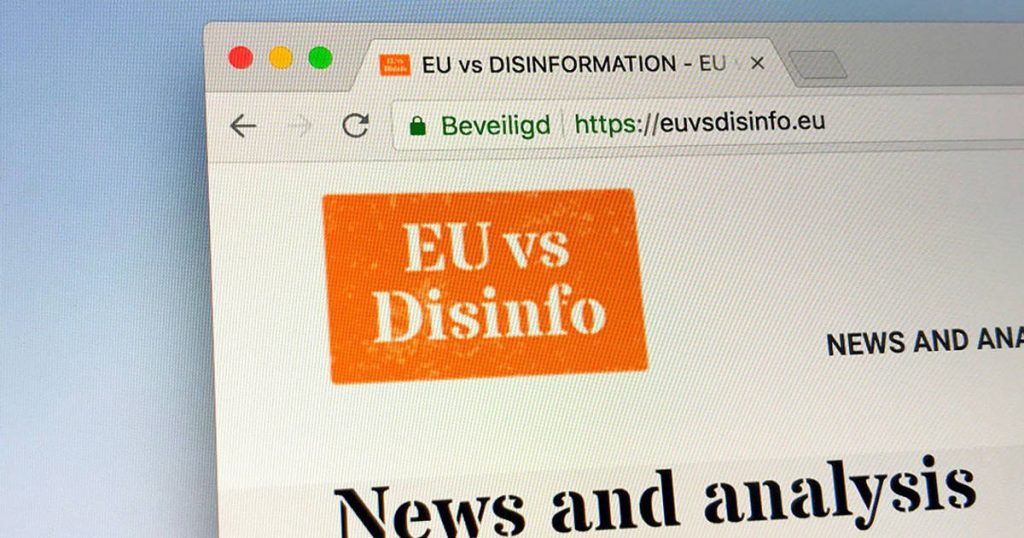Listen to the article
Russian disinformation efforts against Western democracies have intensified, with propaganda campaigns targeting high-profile events like the Paris Olympics and attempting to influence electoral processes in countries such as Romania and Moldova, according to recent analysis from the Royal United Services Institute’s Centre for Finance and Security.
The European Union has responded to these threats with increasingly comprehensive sanctions against Russian state-controlled media outlets, demonstrating that democratic institutions possess effective countermeasures against foreign information manipulation. The European External Action Service recently highlighted sanctions as a key component of the EU’s strategy to combat disinformation in its Third Report on Foreign Information Manipulation and Interference Threats.
While the use of sanctions to counter disinformation raises legitimate concerns about freedom of speech, security experts argue they represent a necessary tool for protecting democratic processes from harmful foreign propaganda. However, significant challenges remain in implementation and enforcement, particularly as similar tools are not typically deployed against domestic sources of misinformation.
The EU’s sanctions against Russian media outlets began shortly after the full-scale invasion of Ukraine in February 2022. On March 1, 2022, as part of its third sanctions package, the Council of the European Union introduced specific measures targeting Russian state-controlled media. This swift action underscored the EU’s growing recognition of information warfare as a critical security concern.
Initially, sanctions focused on the English, French, German, and Spanish-language editions of Russia Today (RT) and Sputnik, two of the Kremlin’s primary international propaganda channels. However, the scope has expanded considerably in subsequent sanctions packages. The list now includes 32 outlets spanning various media formats, including the news agency RIA Novosti, television channels Rossiya 24 and Rossiya 1, and prominent newspapers such as Rossiyskaya Gazeta and Izvestia.
Despite this extensive list, not all Russian media operations face restrictions within the EU. Several significant outlets remain fully accessible, including the state-owned TASS news agency and daily newspapers Kommersant and Vedomosti. This selective approach reflects the complex balance European policymakers must strike between countering disinformation and preserving media freedoms.
The implementation of these sanctions has not been uniform across Europe. Some EU member states have taken more aggressive stances than required by the collective sanctions regime. Lithuania and Estonia, for example, have banned additional Russian media outlets not included in the official EU list. These Baltic states, which share borders with Russia and have significant Russian-speaking populations, have historically been particularly concerned about the Kremlin’s information operations.
Conversely, European Free Trade Association members Norway and Switzerland have taken a different approach. While these nations have aligned with virtually all other EU sanctions against Russia, they have notably declined to adopt the specific restrictions targeting disinformation outlets. This divergence highlights the ongoing debate about the appropriate limits of media regulation, even among countries otherwise united in opposing Russian aggression.
Security analysts note that Russian disinformation tactics continue to evolve in response to these sanctions. The Kremlin has adapted by creating new outlets, leveraging social media platforms, and utilizing proxy voices to circumvent restrictions. This cat-and-mouse game between Russian propagandists and Western democracies underscores the need for constant vigilance and innovation in defensive measures.
As Russian information operations persist, particularly around critical democratic processes like elections, European nations face the ongoing challenge of protecting their information environments while upholding core democratic values. The evolving sanctions regime represents just one component of what must be a comprehensive approach to building societal resilience against foreign disinformation campaigns.
Fact Checker
Verify the accuracy of this article using The Disinformation Commission analysis and real-time sources.




8 Comments
Disinformation campaigns are a growing threat to democracies worldwide. It’s good to see the EU taking action with targeted sanctions against state-controlled media outlets. But enforcement will be critical to ensure these measures are effective.
Agreed. Disinformation is a serious challenge that requires a multi-faceted response. Sanctions are one component, but we’ll need to see how they’re applied in practice to really gauge their impact.
Sanctions are a complex tool in the fight against disinformation. While they can help protect democratic processes, their implementation raises important free speech concerns. Careful balancing is needed to effectively counter foreign propaganda without infringing on legitimate speech.
Interesting to see the EU taking a strong stance against Russian disinformation. Sanctions could be an effective deterrent, but it will be crucial to implement them in a targeted and transparent way. Curious to see how this plays out.
Disinformation campaigns pose a real threat to democratic institutions. Sanctions may be a necessary tool, but I hope the EU will carefully consider how to wield them without infringing on legitimate speech. Curious to see the long-term impact.
Sanctions against state-controlled media outlets involved in disinformation campaigns seem like a reasonable response. But the devil will be in the details when it comes to implementation and enforcement. Curious to see how this plays out.
This is a concerning trend, with Russia apparently ramping up disinformation efforts to target democratic institutions. Sanctions may be a necessary step, but I worry about the potential free speech implications. Where do we draw the line?
The use of sanctions to counter disinformation is a complex issue. While I appreciate the EU’s efforts to protect democratic processes, I share the concerns about potential free speech implications. Striking the right balance will be critical.